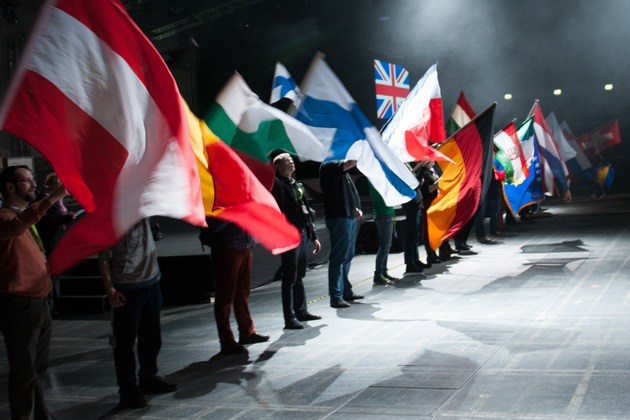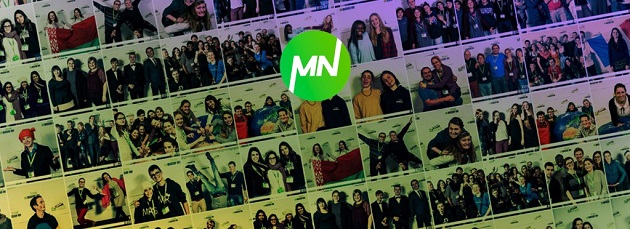What happens after Mission-Net?
“There is an inexhaustible marketplace until the church throughout Europe courageously takes up its responsibility to take missional risks for the kingdom”, says Andy Stevens.
18 SEPTEMBER 2018 · 14:44 CET

Mission-Net announced last week that its General Assembly decided to “definitively cease the operations” as a missions congress and movement in Europe.
Andy Stevens, who has been been appointed alongside Hester Zoutman as the Executive Officer in charge of closing Mission-Net, spoke to Evangelical Focus about the fruit of the mission movement, which involved thousands of young people.
“In terms of the Congress, Mission-Net was sitting in the space that had been vacated by TEMA”, he says. “We had several main distinctives: we were pan-European, we were Evangelical but doggedly non-denominational, we had a specific focus on missions both long-distance and cross community divided locally”.
THE NEED FOR MISSION CONGRESSES

“However, in Central, Eastern and Southern Europe we can see that there would be a great case for a new initiative encouraging and mentoring young Christians and their leaders into considering how they engage with the Great Commission to go to all nations and all people”.
“This would have to be a different model than the Mission-Net Congress, but we perceive a mandate for something here”, he adds.
THE LOCAL CHURCH AS SENDERS
Beyond the four congresses, Mission-Net also worked to promote a mission movement. This area “should really be the responsibility of the local church”, says Stevens. “Churches should be encouraging their members to step up and step out whatever age they are”.
“Mission-Net, at its best, was a catalyst to enable discussion by participants and their church leadership for blessing and permission to take risks for the kingdom. Because Mission-Net had the stamp of the European Evangelical Alliance alongside it, churches took it more seriously”.
But mission in all fields of society should continue to be central for all Christians in Europe. “We long for more community outreach. And the need is not shrinking. As Jesus said, ‘the poor you will always have among you’. But on the Sermon on the Mount he described many different kinds of ‘poor’”.
“There are some wonderful organisations and churches enabling young people to live for the Kingdom both at a macro and a grassroots level, but this is pretty much an inexhaustible marketplace until the church throughout Europe courageously takes up its responsibility to take missional risks for the kingdom”.
FINANCIAL NEEDS TO CLOSE MISSION-NET
In its farewell letter, the Mission-Net board thanked “so many of you were incredibly generous with your finances as we had to cancel the [2017] Congress (…). Your generosity and grace allowed us to pay all of our debts which has set an incredible testimony to all those we negotiated with. We are ending well, faithfully and honestly”.
Stevens says the organisation believes there will be “enough” to pay the final costs of closing the organisation.
A “LONG LIST” TO SAY THANK YOU
As Mission-Net closes, “there is a very long list” of people who have helped make the congress and the movement possible in the last decade. “Behind every participant there were often donors enabling them to go. Behind every donor there was a church leadership encouraging sacrificial giving for the discipleship of their youth. Behind the church leadership there were Evangelical Alliances that promoted Mission-Net and encouraged their churches to push young people to attend the Congress and do something for Jesus. These are people who had no ‘official’ role with Mission-Net, but without whom it simply wouldn’t have happened”.

In addition, Stevens mentions those who took up voluntary roles. “There are our pioneers at OM (too many to name but they know who they are), there are all those who have been part of the board, or as members have contributed to the General Assembly. There are those who donated specifically to Mission-Net, especially so that those from economically more challenging locations could still come”.
Andy Stevens also underlines “a couple of hundred people who took up roles as ‘Motivators’ around Europe over the ten years of Mission-Net. These people were on the front-line - a lot of graft for only some reward”.
Finally, he thanks “Evi Rodemann and Hester Zoutman”, who “deserve special mentions as chief CEOs of Mission-Net”, as well as the “partner agencies who encouraged and challenged us” in these years.
Published in: Evangelical Focus - europe - What happens after Mission-Net?
